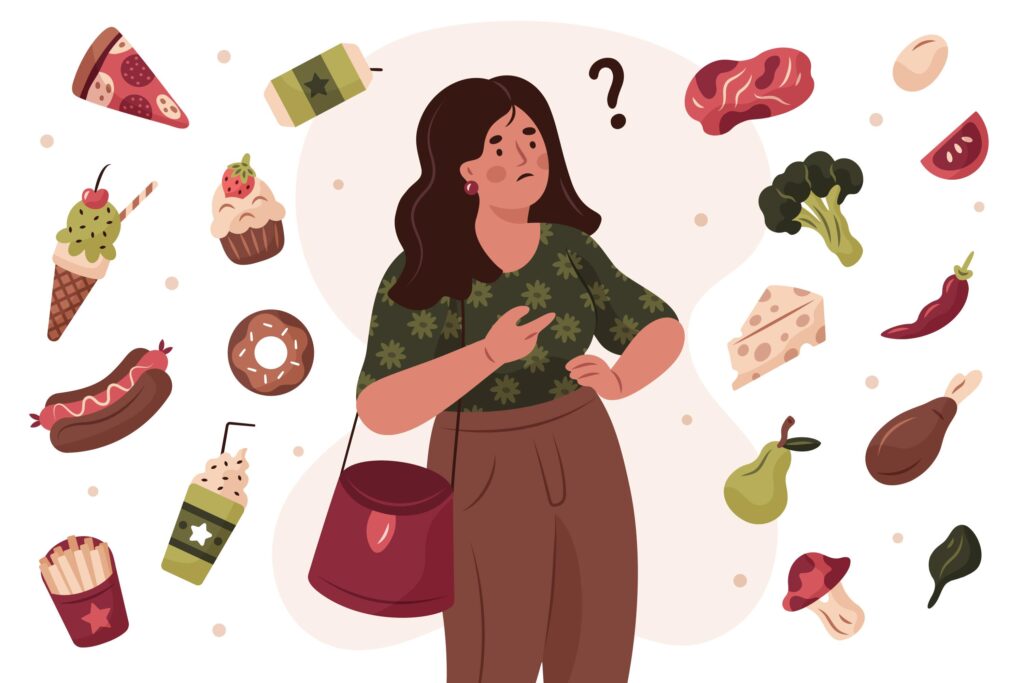
“Food noise” is a popular topic of conversation lately. It’s particularly included in discussions regarding weight loss medications and how they appear to be “quieting” thoughts about food. If you’re unfamiliar with the term, food noise is defined as a preoccupation with food and the conversations we have (with ourselves) about food and what to eat (or not eat). Diet culture remains impactful but confusing, and nutrition trends highlight our social media feeds. So it’s easy for food noise to overwhelm us and create food-related intrusive thoughts (FRITs). Does it sound like I’m describing your internal food monologue? If so, let’s explore how we can lessen your food noise and create a calmer approach to eating.
Recognize True Hunger
Identifying true physical hunger is key to calming food noise. I recommend using a scale of 1-10 to determine if you’re truly hungry. (1 = ravenous, 10 = overly full/stuffed, and 5 = neutral.) Sometimes you may realize you aren’t physically hungry, but still “feel hungry.” When this happens, dig deeper to identify what else you’re experiencing and reduce thoughts of food. Because when we know we aren’t physically hungry, but eat anyway, we create confusion for our body and mind. And this enhances food noise.
What Role Does Food Play in Your Day?
Along with recognizing true hunger, we benefit from truly examining the function of food in our daily lives. Are you eating to cope with stress, manage fatigue, reduce boredom, or play another role outside of nourishment and energy? And if so, does this lead to confusion, guilt, or other upsetting feelings about food? Emotional eating and the negative feelings that accompany it escalate food noise. Diminish this by identifying positive and supportive approaches to managing difficult moments without turning to food.
Diets, Macros, and More
There’s no doubt that dieting, counting macros, and tracking calories lead to a preoccupation with food. These diet approaches force us to focus heavily on food and how to construct meals. When we track food this way, we view it as units instead of nourishment. This shifts our focus away from being introspective and likely increases food noise.
Food Prep Gone Bad
While helpful in moderation, excessive food prep can lead to perpetual thoughts and a preoccupation with food. This may happen if your food prep plan consumes too much of your time (causing stress). Or if your prepped foods are more of a burden and something you “should have” rather than truly want. If this sounds familiar, reevaluate your approach and establish a meal prep plan that truly works for you.
Scroll Less
Does spending time on social media’s food and diet culture influence you? If the answer is yes, you’re likely exposed to more food noise. Influencers don’t know your personal medical and diet history, so they shouldn’t tell you how and when to eat. Listening to them can be very toxic, create confusion, and worsen food noise. Following unsuitable guidance can also potentially leave you undernourished, hungry, or engaged in a negative relationship with food. The safer approach is to focus inward and identify the small attainable goals that work best for you. And follow positive influences on social media that offer sound science, cooking skills, and positive support.